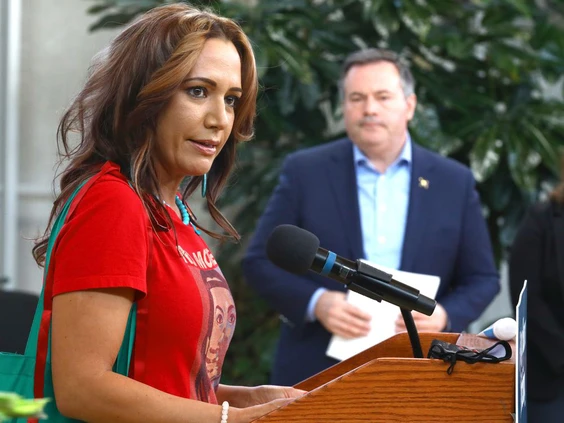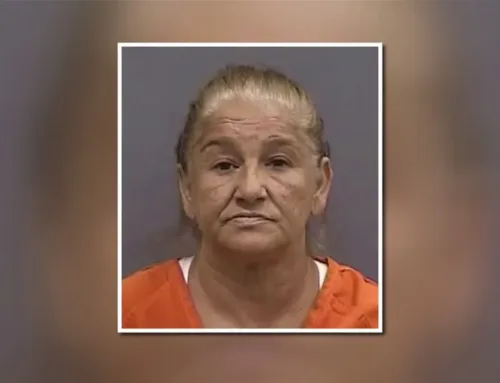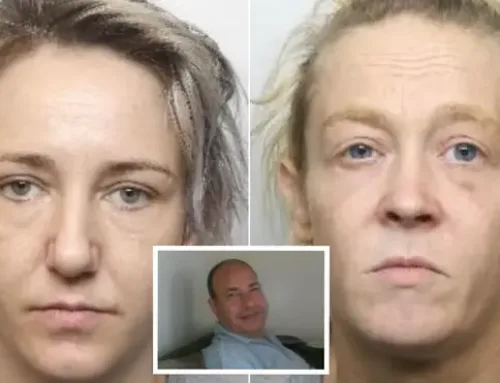March 28, 2022
-Calgary Herald
A provincial task force is urging government action to combat the rising threat of human trafficking in Alberta.
After engaging with nearly 100 experts and survivors, the Alberta Human Trafficking Task Force released a report titled “The Reading Stone — The Survivor’s Lens to Human Trafficking” with 19 calls to action.
Among the recommendations is that the government create an Alberta office to combat human trafficking, which would be a partnership between government and the community to provide support and access to resources. The report notes the office would need to work closely with Indigenous communities because of how human trafficking disproportionately affects Indigenous women.
Premier Jason Kenney said Sunday that ignoring human trafficking only allows it to expand.
“It is the moral obligation of any government to use the extraordinary powers that we have to protect the most vulnerable members amongst us,” Kenney said during a news conference at the RESET Society of Calgary building.
“There is still a daunting amount of work to be done to end human trafficking and its devastating impacts on the lives of its victims and survivors.”
Justice Minister and Solicitor General Tyler Shandro said the Alberta government has accepted or accepted in principle 18 of the 19 recommendations, which he said will make it harder for trafficking to continue and empower survivors to heal and see justice done.
“A wide variety of factors let human trafficking thrive and there are no simple solutions,” said Shandro. “We have a responsibility to do our part to end human trafficking in Alberta.”
The task force was formed in May 2020. Chair of the task force is country music singer and Not In My City founder Paul Brandt, who wasn’t able to attend Sunday’s news conference.
Brandt said in a statement that the accounts of trauma, dehumanization, abuse and exploitation the task force heard changed them all.
“It is difficult to comprehend the depravity of this crime,” said Brandt.
The report also recommended enhanced access to services for victims, survivors and those at risk of being trafficked; universally branded and consistent awareness, education and training programs; human trafficking-specific legislative action, update and harmonization; and enhanced and centralized data collection and research.
The only one of the calls to action Shandro said the government has not moved on is the suggestion that Alberta adopts an “opt-out” organ donor legislation to address the organ supply issue that can lead to organ harvesting. He said Alberta Health continues to study the issue.
Children’s Services Minister Rebecca Schulz said 95 per cent of victims of human trafficking are women, 72 per cent of reported cases are women under 25, and one in five are under the age of 18.
“We know that Indigenous women and young people are overrepresented in these numbers,” she said.
April Eve Wiberg, a Mikisew Cree First Nation woman and survivor of sexual exploitation, said the trafficking of Indigenous people has been occurring since first European contact.
“I believe the only way we can disrupt and combat this threat to the safety of our women, girls, gender-diverse, men and boys, is to begin by sharing our stories as survivors,” she said. “The overrepresentation of Indigenous people in these statistics is staggering and alarming.”
Kate Quinn, the executive director of Centre to End All Sexual Exploitation (CEASE), said everyone should look forward to the day they no longer see stories of human trafficking.
“Some men in Alberta think it’s OK and that it’s their right to buy sexual services from children. This has to stop,” said Quinn. “We need to change the circumstances that increase vulnerability to sexual exploitation and sex trafficking. The collaborative action to move these recommendations into reality will make a key difference.”
The report is dedicated to those at risk, those who are being trafficked, those who are recovering from the trauma of trafficking and those who have lost their lives, said Heather Forsyth, member of the task force and former solicitor general.
“It is the second-largest source of illegal income in the world,” she said. “It’s one of the fastest-growing crimes in Canada today and it is increasing in Alberta . . . It needs to stop, and it needs to stop today.”
The task force also included Edmonton police Chief Dale McFee, executive director of REACH Edmonton Jan Fox, director of Backwoods Energy and former RCMP director-general Douglas Reti, director of Catholic Social Services Patricia Vargas, and Siksika Health Services CEO Tyler White.




